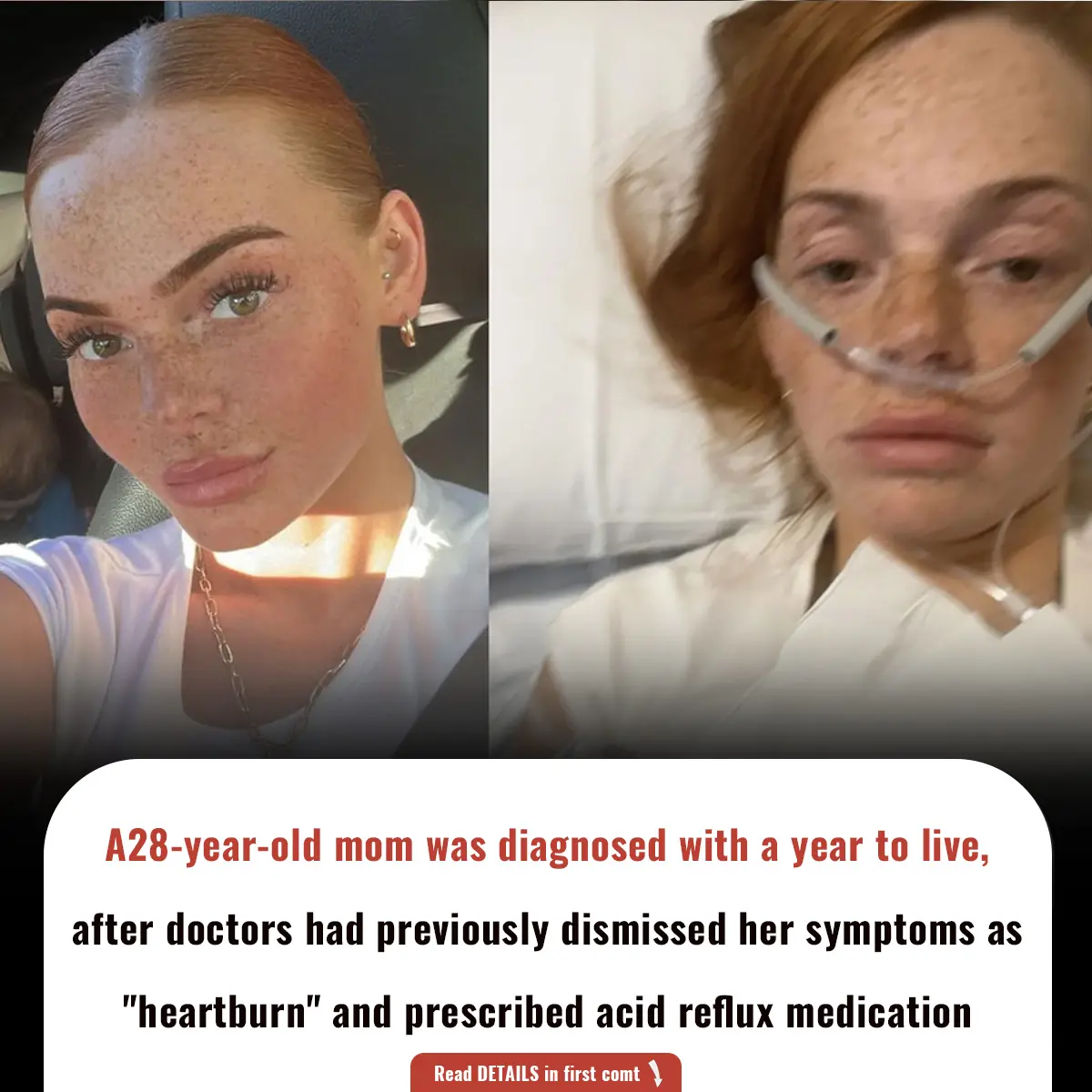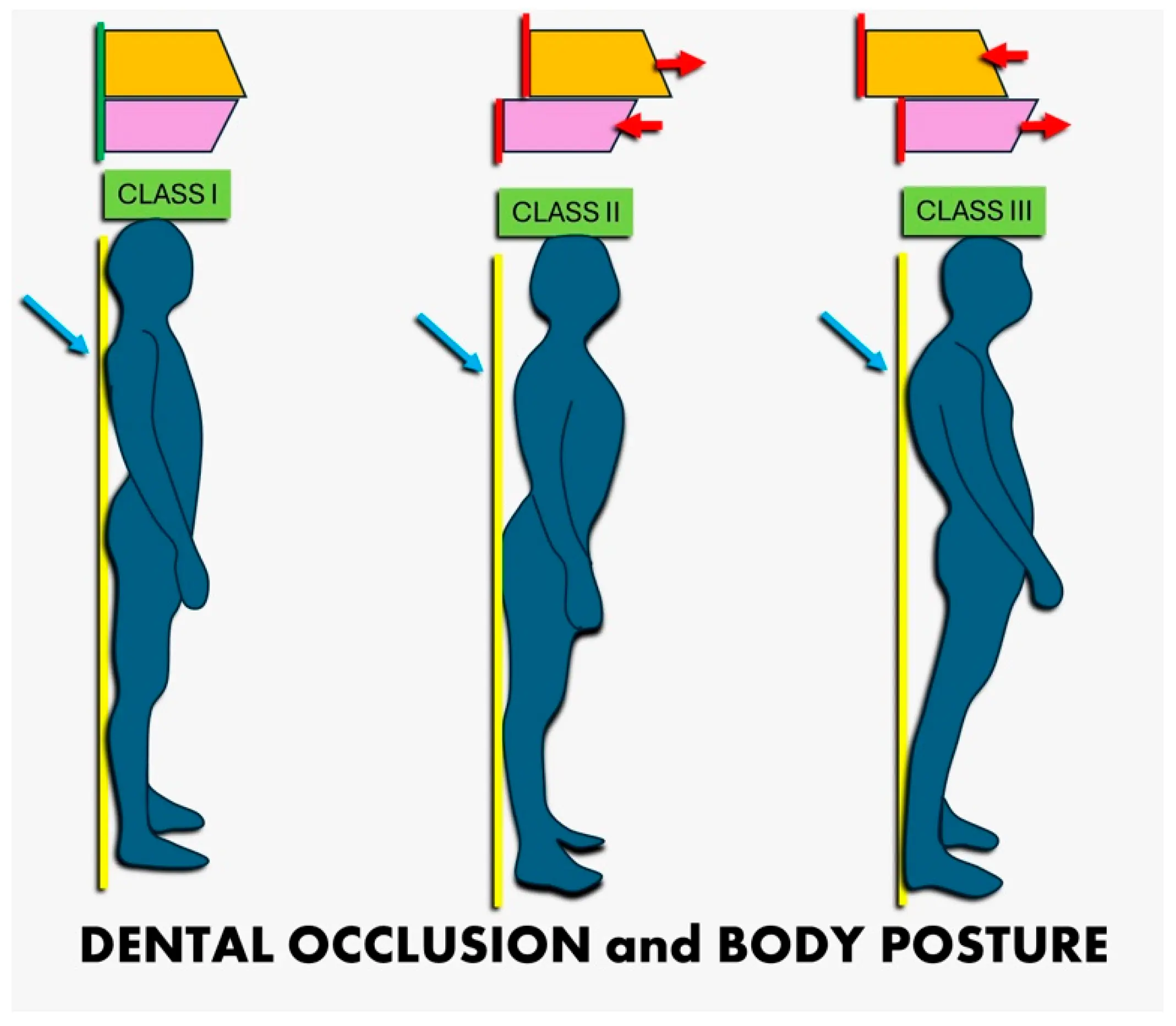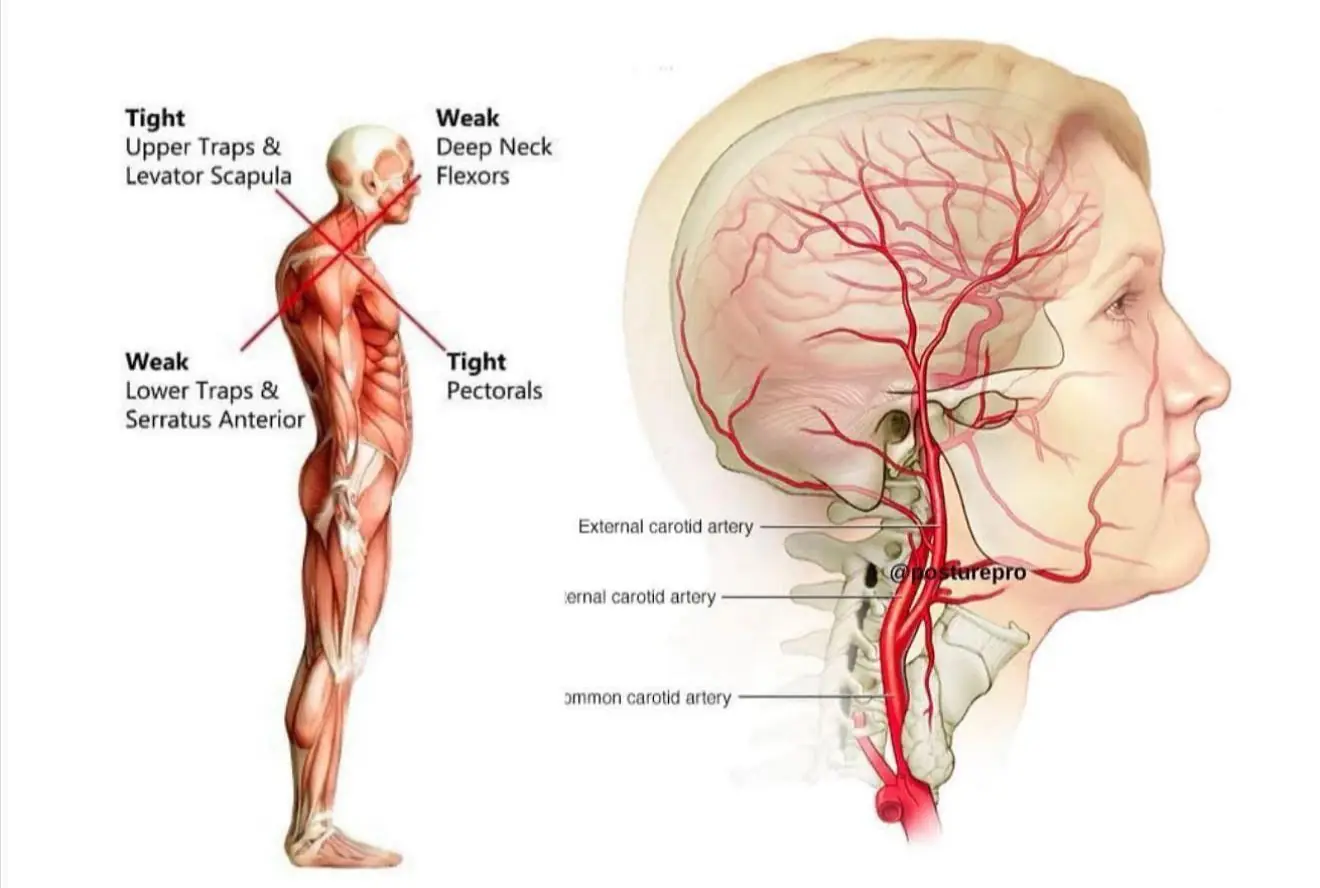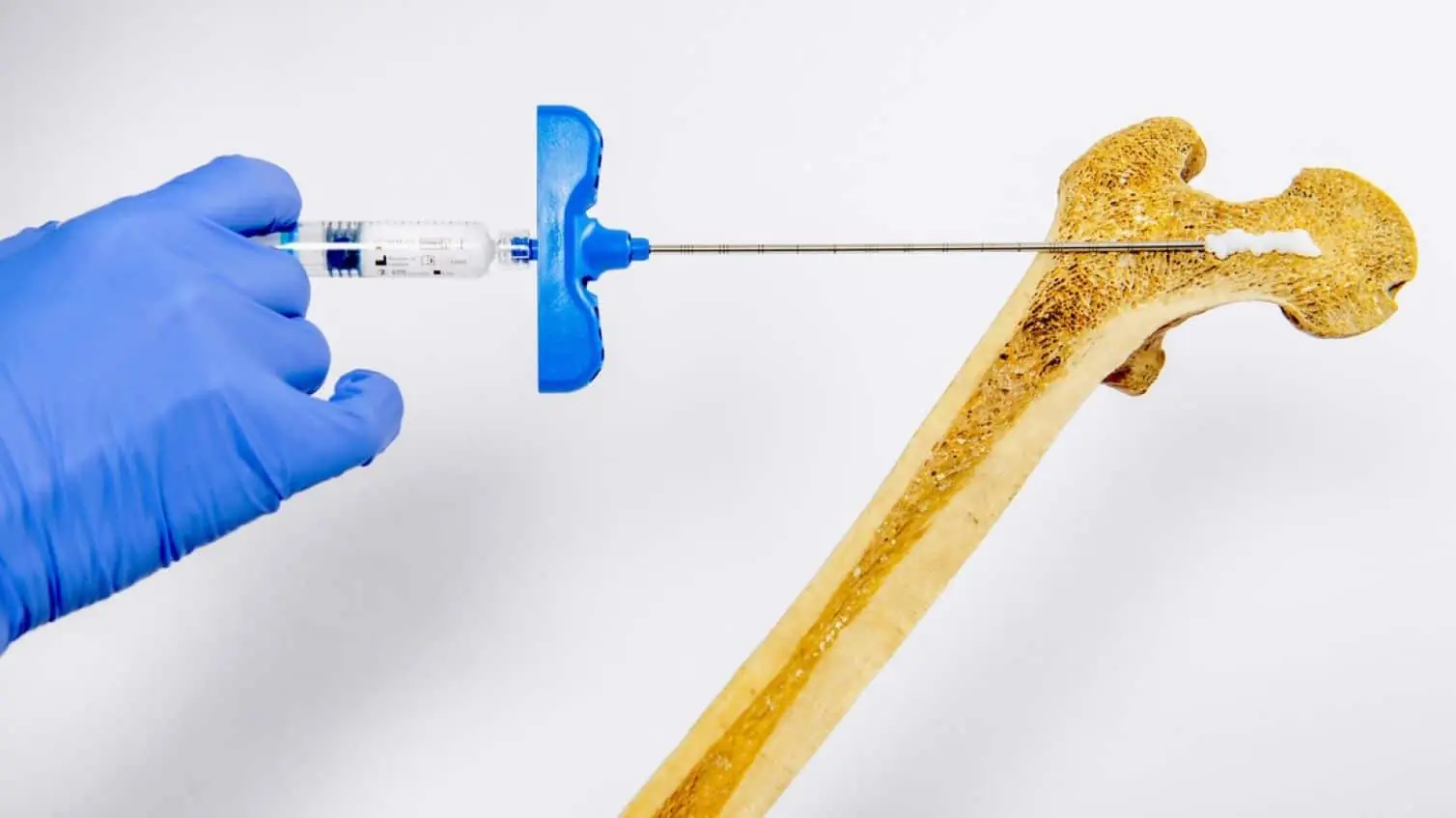The rising incidence of digestive health issues, including SIBO and cancers like bowel and pancreatic cancer, underscores the importance of early detection and proactive health measures.
Constipation is a common digestive issue that many people experience, but what if it's more serious than just the occasional discomfort? As the body struggles to properly evacuate waste, it can lead to a cascade of health problems. One woman’s story has highlighted the serious implications of chronic constipation, showing how it led to a condition that’s been linked to both bowel and pancreatic cancer.
In this case, a 35-year-old woman had been experiencing an extremely infrequent bowel movement schedule, having only one bowel movement a week for the past 15 years. Although she had no idea this was abnormal, it eventually led to significant digestive issues. After experiencing consistent bloating and excessive gas, she sought help from gut health specialist Dr. Devin Wagenman, who made an alarming diagnosis: small intestinal bacterial overgrowth (SIBO).
SIBO occurs when bacteria from the large intestine migrate into the small intestine, leading to an overgrowth of these bacteria. This overgrowth can cause a range of uncomfortable symptoms such as bloating, excessive gas, pain, food intolerances, and nutrient deficiencies. If left untreated, SIBO can also interfere with the absorption of fats and other nutrients, potentially leading to vitamin deficiencies, kidney problems, and even cancer.

According to Dr Wagenman, 'pooping once a week is not normal' and could be a sign of something more serious

Dr Wagenman shared his patient's lab results on Instagram after she suffered 15 years of constipation
Understanding the Link Between SIBO and Cancer
Research has suggested that SIBO can produce toxins that activate receptors in the body known as TLR-4 receptors. These receptors play a significant role in triggering inflammation, which is known to support tumor growth. In a 2016 Chinese study involving over 200 cancer patients, researchers found a strong link between SIBO and the development of pancreatic, bile duct, and colon cancers. This study raises concerns about the long-term impact of untreated digestive conditions like SIBO, especially in those who may be unaware of the risks involved.
While the woman in question did not initially connect her constipation with a more severe health issue, the link between SIBO and cancer is not to be taken lightly. According to the study, prolonged gut imbalances could potentially lead to the development of tumors, making early diagnosis and treatment crucial for preventing serious consequences.
The Role of Constipation in Developing SIBO
For many individuals, chronic constipation is a persistent issue, but it is often treated with temporary solutions. In this woman's case, several specialists had diagnosed her symptoms as a result of constipation and advised that increasing fiber intake or using laxatives like MiriLax would resolve the problem. However, this did not improve her condition. Dr. Wagenman, after reviewing the situation, identified that the woman was a vegetarian who consumed a large amount of fiber daily. This led him to question why this approach wasn't helping, despite what the specialists had suggested.
The key here lies in the fact that SIBO occurs when the movement of food and waste products in the digestive tract slows down. When the body does not regularly evacuate waste through bowel movements, it creates an environment where bacteria can thrive. This is particularly true for individuals suffering from constipation, as the stasis in the gut leads to bacterial overgrowth in the small intestine. As a result, constipation can exacerbate digestive issues and lead to the growth of harmful bacteria, which can affect the gut's ability to function properly.
Dr. Wagenman explained that after conducting a stool test and examining the woman’s symptoms, it was evident that her gut was overwhelmed with bacteria. This created a breeding ground for SIBO, further compounding her digestive problems. After diagnosis, a combination of medical treatment and dietary adjustments helped the woman recover, and she began experiencing more frequent and healthy bowel movements. Within two months, she was able to have two to three healthy bowel movements per week, a significant improvement from her previous routine.
Symptoms and Diagnosis of SIBO
SIBO can be difficult to diagnose due to the overlapping symptoms with other gastrointestinal disorders. Some common signs of SIBO include bloating, excessive gas, abdominal pain, and changes in bowel movements. Because these symptoms are similar to other digestive conditions such as IBS (Irritable Bowel Syndrome), it is crucial for individuals to seek professional medical advice if they experience these signs over an extended period.
Diagnosis typically involves breath tests that measure the levels of hydrogen and methane in the breath, or in more severe cases, an endoscopy. If left untreated, SIBO can cause complications such as malnutrition, vitamin deficiencies, and an increased risk of certain cancers. Early detection is essential for managing the condition and preventing further health issues.
Preventing SIBO and Other Digestive Issues
While it’s essential to address the symptoms of SIBO and constipation as soon as they arise, prevention is equally important. Maintaining a healthy, balanced diet is key in preventing the buildup of bacteria in the intestines. Foods rich in fiber, such as fruits, vegetables, and whole grains, are beneficial for maintaining regular bowel movements and supporting gut health. Additionally, staying hydrated and exercising regularly can help stimulate the digestive system and prevent constipation.
For individuals with chronic constipation or other digestive issues, it is important to consult a healthcare provider who can offer tailored treatment options. In some cases, it may be necessary to explore further testing or adjustments in diet and lifestyle. Doctors may recommend medications or antibiotics to manage bacterial overgrowth, as well as probiotics to restore the balance of healthy bacteria in the gut.
The Growing Concern of Cancer in Younger Adults
The woman’s story comes as part of a broader trend that has seen younger adults being diagnosed with bowel and other types of cancer. Many individuals initially attribute their symptoms to stress, indigestion, or food intolerances, only to later discover a more serious underlying condition. This has led to a growing call for early cancer screening, as early detection can significantly improve the chances of successful treatment and recovery.
In a similar case, a mother from Sydney, named Tess, shared her experience of being diagnosed with stage four bowel cancer after months of dealing with symptoms she thought were due to a food intolerance. Tess had been experiencing stomach pain, constipation, and other digestive symptoms before she was finally diagnosed with bowel cancer, which had already spread to her liver. This case highlights the importance of timely diagnosis and the need for further education around the symptoms of serious diseases like bowel cancer.
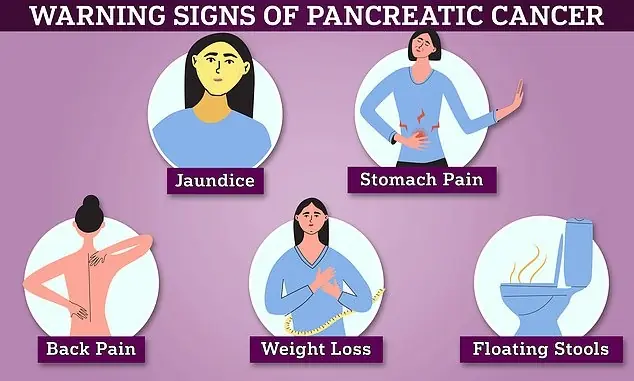
Pancreatic cancer has been dubbed a 'silent killer' due to its subtle signs that are often only spotted too late
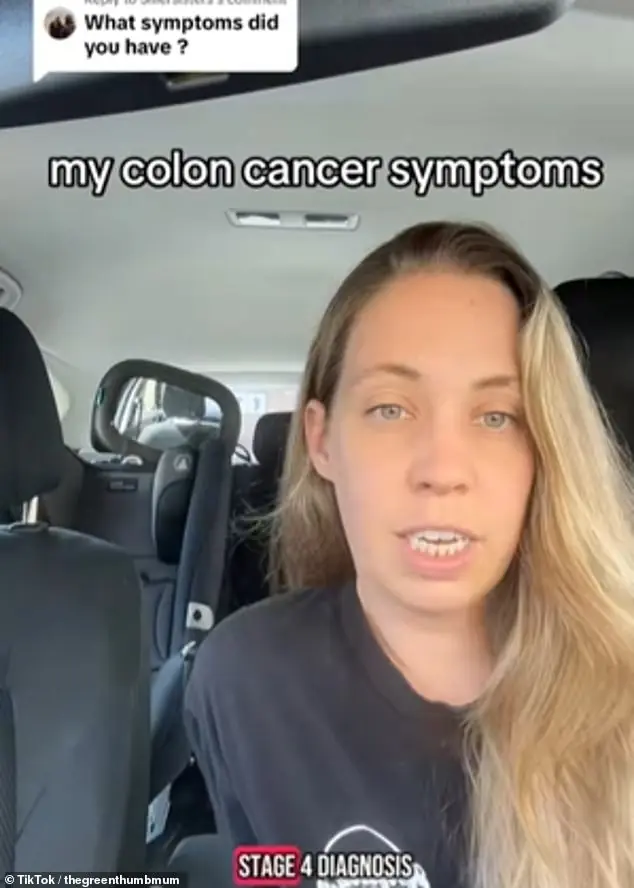
Tess, who goes by the name 'thegreenthumbmum' on TikTok posted a video about her symptoms in a bid to spare others from the same fate
Proactive Health Measures and Cancer Awareness
Health professionals and experts alike emphasize the importance of being proactive about digestive health. Regular check-ups, maintaining a healthy diet, and being aware of any changes in your body are essential for preventing serious conditions like SIBO and cancer. It is also important to be aware of your family history, as certain conditions, including some cancers, may be hereditary.
In the case of prostate cancer, for example, experts have urged men over 50, particularly those at high risk, to get tested regularly. Similarly, as the risks of pancreatic and bowel cancers continue to rise, healthcare providers are advocating for early screenings and more extensive research into digestive health and its connection to cancer.
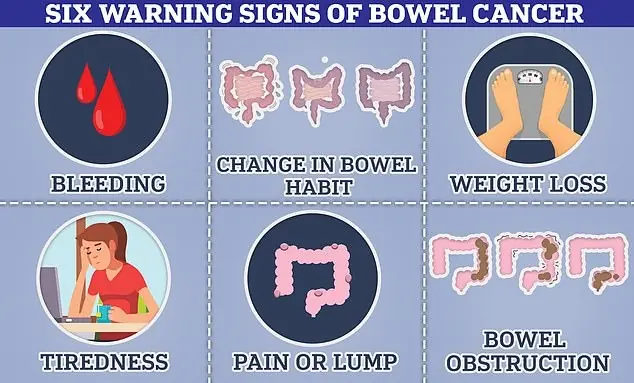
Bowel cancer can cause you to have blood in your poo, a change in bowel habit, or a lump inside your bowel which can cause an obstructions. Some people also suffer with weight loss as a result of these symptoms
Conclusion: The Importance of Early Detection and Treatment
The rising incidence of digestive health issues, including SIBO and cancers like bowel and pancreatic cancer, underscores the importance of early detection and proactive health measures. The story of the 35-year-old woman who suffered from SIBO due to chronic constipation serves as a reminder of the serious consequences of neglecting digestive health. By seeking medical advice when symptoms persist and making lifestyle changes to support digestive function, individuals can prevent conditions like SIBO from escalating into something more severe.
In the broader context of cancer awareness, this case also highlights the need for increased education on the signs of digestive-related cancers and the importance of early screening. By acting quickly and seeking professional care, people can mitigate the risks associated with chronic digestive issues and ultimately improve their quality of life. Whether it’s through diet, exercise, or regular medical check-ups, taking charge of your digestive health is one of the best ways to safeguard against life-threatening conditions.












